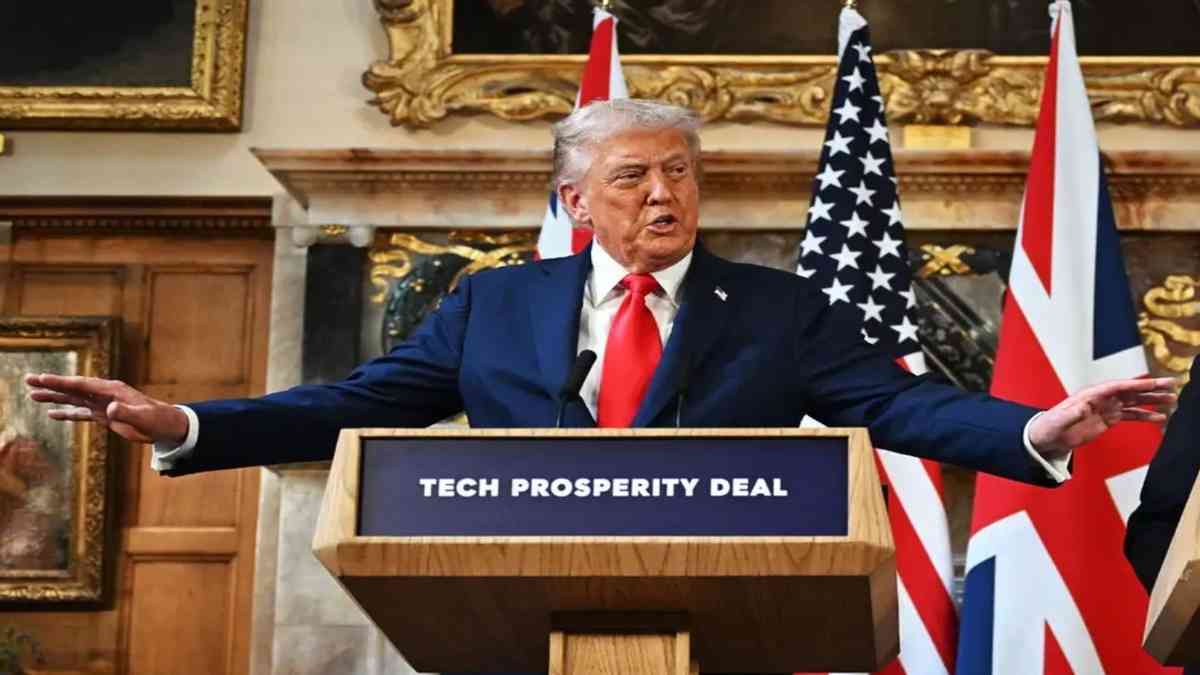Initial confusion sparked panic in tech industry; existing visa holders and renewals exempt from the one-time fee
A day after the U.S. government announced a dramatic increase in H-1B visa fees, the White House issued a key clarification, confirming that the $100,000 fee applies only to new applicants and is not an annual charge. The correction comes just hours before the policy takes effect, easing fears among companies and current visa holders.
The announcement had initially created widespread confusion, with U.S. firms scrambling to understand the implications for their foreign employees—particularly in the tech sector, where Indian nationals make up nearly 75% of H-1B visa recipients.
What the White House Clarified
Press Secretary Karoline Leavitt clarified the policy in a social media post late Saturday:
“This is NOT an annual fee. It’s a one-time fee, and it applies only to new visas, not to renewals or current visa holders.”
Key Points of the Clarification:
- $100,000 is a one-time fee, not recurring yearly.
- Applies only to new H-1B visa applicants.
- Renewals are exempt.
- Current visa holders can re-enter the U.S. without paying the new fee.
Widespread Panic Before Clarification
Before the clarification was issued, many H-1B workers were advised not to travel, and some even de-boarded flights over fear of being denied re-entry.
- Major firms like JPMorgan circulated internal memos warning employees to stay within U.S. borders.
- The San Francisco Chronicle reported that some visa holders already in transit cancelled their travel plans.
- Confusion arose partly due to comments by Commerce Secretary Howard Lutnick, who initially described the fee as “annual” and applicable to both new and renewing visas.
Trump Administration’s Justification
President Donald Trump, while signing the executive order, argued the changes were meant to protect American jobs.
“The H-1B program has been exploited to replace, not supplement, American workers with lower-paid labor,” said Trump.
He also launched a new $1 million “Gold Card” residency program, aimed at attracting high-value immigrants.
Commerce Secretary Lutnick stated:
“Companies must decide—is the worker valuable enough to pay $100,000 a year or should they hire an American?”
His comments fueled further misunderstanding, contradicting the actual policy clarified later by the White House.
Impact on Tech Industry & Indian Nationals
- The H-1B visa is vital for tech giants like Google, Amazon, and Microsoft.
- In 2024, the U.S. approved around 400,000 H-1B visas, with two-thirds being renewals.
- Indian nationals account for over 70% of these visas.
Tech leaders and entrepreneurs, including Elon Musk, have voiced opposition to the policy, warning it could hurt innovation.
India’s Response
India’s Ministry of External Affairs acknowledged the clarification but expressed concerns:
“Skilled talent mobility has contributed to innovation and wealth creation in both countries,” it stated.
The ministry warned of “humanitarian consequences” due to family disruptions, urging the U.S. to consider the impact on Indian professionals and their families.
Summary: What You Need to Know
| Category | Detail |
|---|---|
| New Fee | $100,000 (One-time only) |
| Applies To | New H-1B visa applicants |
| Does NOT Apply To | Renewals, Current H-1B holders |
| Re-entry for H-1B holders | Allowed as usual |
| Effective From | Sunday, 12:01 AM US Eastern Time |
| Key Concern | Job loss, travel restrictions, legal challenges |
Follow for more developments as the policy faces likely legal challenges and as India–US diplomatic talks evolve over the coming days.



